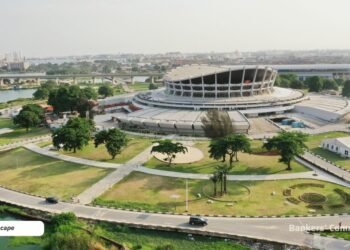Nigeria is a nation that is blessed with arable land and a teeming youthful population. For so long, the nation has been tied to the fortunes of crude oil. Oil revenues have dominated the sustenance of economic development.
The overall annual GDP growth for Nigeria in 2024 is reported at 3.40%. The oil sector’s contribution to real GDP in Q4 2024 was 4.60%, with an annual growth rate of 5.54%. The agriculture sector contributed 24.64% to real GDP in Q4 2024, and 20.97% to aggregate nominal GDP for the full year, though its growth was more modest at 1.2% to 1.76% across different quarters. The non-oil sector, which includes agriculture, contributed a substantial 95.40% to real GDP in Q4 2024, indicating a decreasing reliance on oil as the main economic driver.
Nigeria’s economy is primarily driven by its non-oil sectors, with agriculture serving as a significant foundation, even with its ongoing productivity and security hurdles. There’s optimism that agriculture could spearhead the nation’s economic diversification in the future, especially if it’s strategically developed to generate foreign exchange and government revenue.
Agriculture was the bedrock of the Nigerian economy before the oil boom. Agriculture was the undisputed mainstay of Nigeria’s economy, contributing over 60% to the Gross Domestic Product (GDP) and employing more than 70% of the population. Regions specialised in cash crops like cocoa, palm oil, groundnuts, and rubber, making Nigeria a significant global exporter. The revenue generated from these agricultural activities fueled infrastructural development, education, and social amenities across the country. The oil boom in the 1970s led to a neglect of the agricultural sector and fostered an over-reliance on petrodollars and invariably led to the stifling of the development of a diversified economy.
Just weeks into office in July 2023, President Bola Ahmed Tinubu declared a national emergency on food security, signaling a commitment to transforming agriculture into a modern, productive, and resilient engine of growth. Key initiatives include the immediate release of fertilizers and grains from national strategic reserves, a harmonisation of efforts between the Ministry of Agriculture and the Ministry of Water Resources to enable all-season farming through expanded irrigation, and the proposed establishment of a National Commodity Board to stabilize food prices and strengthen reserves. The administration of President Bola Tinubu has embarked on significant reforms to position agriculture as an economic tool to drive diversification. The efforts are constantly challenged by the pervasive violence of bandits on Nigerian farmers.
One of the flagship programs is the Agro-Pocket Initiative under the National Agricultural Growth Scheme, targeting the cultivation of 750,000 hectares for staple crops like rice, maize, wheat, and cassava, providing targeted support and input vouchers to farmers. To cushion the effects of inflation, the administration also announced a 150-day suspension of duties and tariffs on essential food imports and facilitated the import of significant quantities of maize and wheat for small-scale processors. Furthermore, a new National Agricultural Extension Policy aims to deliver demand-driven, ICT-enabled, and market-oriented extension services, moving away from outdated methods.
The ambitious agricultural agenda faces a formidable adversary: widespread banditry and insecurity. Across various regions, particularly in the food-producing states, farmers are increasingly subjected to violent attacks, kidnappings, and extortion. These acts of violence have devastating consequences, forcing many farmers to abandon their farmlands, reducing cultivated areas, and disrupting the entire agricultural value chain. The fear of attack not only deters new investments but also jeopardizes the livelihoods of existing farmers, leading to reduced agricultural output and escalating food prices. The Centre for Journalism Innovation and Development (CJID) recently highlighted that “No Farmer, No Food: Attacks on Farmers Fuel Nigeria’s Hunger Crisis,” underscoring the direct link between insecurity and food insecurity.
The Tinubu administration acknowledges this critical challenge. The National Security Adviser (NSA), Mallam Nuhu Ribadu, has reiterated the government’s commitment to returning displaced farmers to their communities and farms, emphasizing that sustainable peace cannot be achieved through kinetic responses alone. There’s a recognition that addressing the root causes of violent extremism, such as poverty and lack of opportunity, through inclusive, whole-of-government, and whole-of-society solutions, including integrated agricultural approaches, is crucial. The approval of Forest Guards is also seen as a transformative measure to enhance security for farmers.
Beyond the immediate crisis of insecurity, Nigeria’s agricultural sector still grapples with a myriad of systemic challenges. These include poor access to finance, with many farmers relying on informal lenders at exorbitant rates; high production costs, exacerbated by fuel subsidy removal; inadequate infrastructure, leading to significant post-harvest losses; and the impacts of climate change, such as erratic rainfall patterns and floods. Experts advocate for sustained investment in agricultural infrastructure, including irrigation systems, storage facilities, and rural road networks, to reduce post-harvest losses and improve market access.
Despite these hurdles, the potential for agriculture to drive Nigeria’s economic diversification remains immense. By focusing on value addition through agro-processing, leveraging modern agricultural technology (precision farming, irrigation, biotechnology, satellite imagery for yield prediction), diversifying crop production beyond traditional cash crops to include high-demand items, and investing in livestock and aquaculture, Nigeria can unlock significant economic growth. Public-private partnerships and accessible financial solutions, coupled with robust policy reforms, are vital to support smallholder farmers and attract necessary investments.
The journey beyond oil will be long and arduous, but agriculture offers Nigeria a tangible and sustainable path to economic resilience. President Tinubu’s reforms demonstrate a clear intent, but their success hinges on the government’s ability to effectively tackle the escalating violence against farmers. Without a secure environment, the seeds of diversification will struggle to take root, and the promise of a thriving agricultural sector will remain elusive. Only when farmers can work their lands in peace will agriculture truly become the robust engine Nigeria needs to diversify its economy and secure a prosperous future for its citizens.
By Diana Tenebe, Chief Operating Officer, Foodstuff Store.






















